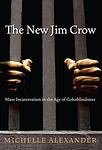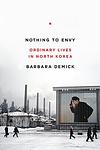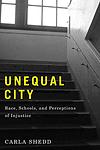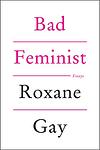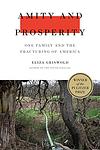The Greatest "Nonfiction, Poverty" Books Since 2000
Click to learn how this list is calculated.
This list represents a comprehensive and trusted collection of the greatest books. Developed through a specialized algorithm, it brings together 284 'best of' book lists to form a definitive guide to the world's most acclaimed books. For those interested in how these books are chosen, additional details can be found on the rankings page.
Genres
The category of "Poverty" in books refers to stories that explore the experiences of individuals or communities living in poverty. These books may examine the social, economic, and political factors that contribute to poverty, as well as the personal struggles and triumphs of those living in poverty. They may also shed light on the inequalities and injustices that exist within society and the impact they have on marginalized communities. Overall, books in this category aim to raise awareness and understanding of poverty and its effects on individuals and society as a whole.
Countries
Date Range
Reading Statistics
Click the button below to see how many of these books you've read!
Download
If you're interested in downloading this list as a CSV file for use in a spreadsheet application, you can easily do so by clicking the button below. Please note that to ensure a manageable file size and faster download, the CSV will include details for only the first 500 books.
Download-
1. What Is the What by Dave Eggers
The novel is a fictionalized account of a real-life Sudanese refugee, Valentino Achak Deng, who was forced to flee from his village during the Second Sudanese Civil War. The story follows his harrowing journey as a child through Ethiopia and Kenya, his life in various refugee camps, and his eventual resettlement in the United States. The book explores themes of survival, identity, and the power of storytelling, while shedding light on the tragic history and ongoing humanitarian crisis in Sudan.
-
2. Nickel And Dimed by Barbara Ehrenreich
The book is a firsthand journalistic account of the author's experiment to survive on minimum wage jobs in America. She gives up her middle-class life to understand the reality of low-wage workers, working as a waitress, a hotel maid, a cleaning woman, a nursing home aide, and a retail chain employee. The book reveals the harsh and often overlooked conditions of the working poor, highlighting the struggle to afford even basic necessities, the lack of job security, and the physical toll of such work.
-
3. The New Jim Crow by Michelle Alexander
"The New Jim Crow" is a thought-provoking and eye-opening book that examines the deeply ingrained racial bias within the American criminal justice system. Drawing on extensive research and personal anecdotes, the author explores how the War on Drugs has disproportionately targeted and marginalized Black communities, leading to a modern-day system of racial control and oppression. This powerful critique challenges readers to confront the systemic racism that continues to perpetuate inequality and injustice in the United States.
-
4. Evicted: Poverty and Profit in the American City by Matthew Desmond
This book provides an in-depth look at the housing crisis in America, focusing on eight families in Milwaukee who are struggling to keep a roof over their heads. The author explores the role of eviction in perpetuating poverty, illuminating the business of landlords and the harsh reality of tenants in impoverished neighborhoods. The book offers a close examination of the intersection between profit and poverty, revealing how both are intricately linked in the American housing market.
-
5. Behind the Beautiful Forevers: Life, Death, and Hope in a Mumbai Undercity by Katherine Boo
This book is a gripping narrative that provides an in-depth look into the lives of residents in a Mumbai slum, focusing on their struggles and aspirations. The author paints a vivid picture of the harsh realities of poverty, corruption, and inequality, while also highlighting the resilience and hope of the inhabitants. The narrative is a powerful exploration of the complexities of modern India, revealing the stark contrast between the country's booming economy and the grim living conditions of its underprivileged citizens.
-
6. Enrique's Journey by Sonia Nazario
"Enrique's Journey" is a poignant narrative about a young Honduran boy who embarks on a perilous journey through Central America and Mexico to reach his mother in the United States. The story, based on a Pulitzer Prize-winning newspaper series, explores the harsh realities faced by immigrants, the devastating impact of family separations, and the unyielding determination of a child in search of his mother. It offers a deeply personal and eye-opening perspective on the challenges and perils faced by undocumented immigrants.
-
7. Just Mercy by Bryan Stevenson
This book is a profound work of non-fiction that focuses on the author's experiences as a young lawyer fighting for the rights of those wrongfully convicted or excessively punished. The narrative primarily revolves around the case of a black man sentenced to death for a crime he didn't commit. The author not only exposes the inherent racial bias and systemic flaws in the American criminal justice system, but also provides a compelling argument for compassion in the pursuit of justice.
-
8. Little Heathens: Hard Times And High Spirits On An Iowa Farm During The Great Depression. by Mildred Armstrong Kalish
"Little Heathens" is a memoir of Mildred Armstrong Kalish's childhood on an Iowa farm during the Great Depression. Kalish recounts the daily struggles and joys of life on the farm, from making do with limited resources to finding creative ways to entertain themselves. Through her vivid descriptions and humorous anecdotes, Kalish paints a picture of a resilient and close-knit community that persevered through tough times with a spirit of determination and optimism.
-
9. Hillbilly Elegy by J. D. Vance
"Hillbilly Elegy" is a memoir that explores the author's personal journey from a troubled upbringing in a working-class Appalachian family to achieving success as a Yale Law School graduate. Through his own experiences, J. D. Vance delves into the challenges and complexities faced by the white working class in America, addressing issues such as poverty, addiction, and the cultural dynamics that shape their lives. This poignant and thought-provoking account offers a compassionate and insightful examination of social and economic struggles, while also reflecting on the importance of family, resilience, and the pursuit of the American Dream.
-
10. The Glass Castle by Jeannette Walls
This memoir recounts the unconventional, poverty-stricken upbringing the author and her siblings had at the hands of their deeply dysfunctional parents. Their father, an alcoholic, and their mother, an eccentric artist, frequently neglected them, leaving them to fend for themselves. Despite their parents' personal struggles, they instilled a love of learning and a sense of self-sufficiency in their children, which helped them to escape their chaotic home life and build successful lives as adults.
-
11. Poor Economics by Abhijit V. Banerjee, Esther Duflo
This book delves into the complex world of poverty, challenging conventional wisdom and assumptions about the economic decisions of the poor. Through rigorous analysis and empirical evidence, the authors explore how the poor make choices regarding education, health care, savings, and investments, revealing the logic behind these decisions. They argue that understanding these choices is crucial for designing effective anti-poverty policies. The book advocates for a more nuanced, bottom-up approach to economics, emphasizing the importance of specific, targeted interventions over broad, one-size-fits-all solutions. By combining detailed field research with economic theory, it provides insightful perspectives on how to empower the world's impoverished populations.
-
12. Nothing to Envy by Barbara Demick
"Nothing to Envy" is a non-fiction narrative that provides an in-depth look at life in North Korea through the eyes of six defectors. The book covers a span of 15 years, during which the country faced a devastating famine. It explores the lives of ordinary citizens, their indoctrination, their gradual realization of the truth about their government, and their decision to defect. The book paints a vivid picture of the harsh realities of life under a totalitarian regime and the struggle for survival and escape.
-
13. Unequal City by Carla Shedd
"Unequal City" examines the intersection of race, class, and education in the urban environment, focusing on how the American educational and criminal justice systems shape the lives of young people in Chicago. The book delves into the experiences of Chicago high school students, highlighting the stark disparities they face based on where they live and go to school. Through a sociological lens, it explores the systemic inequalities that are perpetuated by institutional policies and practices, revealing how schools and policing policies not only reflect but also reinforce existing social hierarchies, contributing to a cycle of disadvantage for minority and low-income youth.
-
14. Invisible Child: Poverty, Survival And Hope In An American City by Andrea Elliott
"Invisible Child" is a non-fiction book by journalist Andrea Elliott that tells the story of Dasani, a young girl living in poverty in New York City. The book follows Dasani and her family as they struggle to survive in a city that seems to have forgotten them. Despite the challenges they face, the family never loses hope, and their resilience and determination are a testament to the power of the human spirit. Through Dasani's story, Elliott sheds light on the systemic issues that perpetuate poverty in America and the urgent need for change.
-
15. Good Economics For Hard Times by Abhijit V. Banerjee, Esther Duflo
This book delves into the pressing economic challenges of our time, offering insightful analysis and solutions grounded in rigorous research. The authors, both Nobel laureates, tackle issues such as immigration, inequality, and job automation, debunking common myths and presenting evidence-based strategies for fostering economic growth and reducing poverty. Through a blend of compelling narratives and empirical data, the book argues for the importance of nuanced, informed policymaking that prioritizes human well-being and sustainable development. It serves as a clarion call for economists, policymakers, and the general public to rethink how economic principles can be applied to address the complex problems facing society today.
-
16. Hunger by Roxane Gay
"Hunger" is a powerful memoir that delves into the complex relationship between the author's body and her experiences of trauma, shame, and self-worth. Roxane Gay fearlessly explores the physical and emotional implications of living in a world that often judges and marginalizes individuals based on their appearance. Through her raw and honest storytelling, she invites readers to confront their own biases and challenges societal norms, ultimately advocating for self-acceptance and compassion.
-
17. Random Family by Adrian Nicole LeBlanc
The book is an intimate exploration of urban life in the Bronx, focusing on the struggles of two women, their families, and their community. The narrative delves into the complexities of love, drugs, teenage pregnancy, and poverty, offering a raw and unflinching portrayal of the American underclass. It reveals the cycles of disadvantage and the impact of societal neglect on marginalized communities.
-
18. Amity and Prosperity: One Family and the Fracturing of America by Eliza Griswold
This book is a detailed account of a family living in rural Pennsylvania, whose lives are disrupted by the fracking industry. It explores the economic desperation that leads small towns to welcome fracking, the environmental and health disasters that follow, and the legal battles that families must wage to protect their rights. The narrative also delves into the political and social divides that the fracking industry exacerbates, providing a comprehensive look at the impact of this controversial practice on American society.
-
19. Ghettoside by Jill Leovy
This book is a gripping exploration of homicide in America, focusing on the disproportionately high rates of murder among African American men in the country's inner cities. Through a detailed case study in South Los Angeles, the narrative delves into the lives of those affected by these crimes, including the dedicated detectives working tirelessly to solve them. The author presents a compelling argument that the lack of effective law enforcement and the criminal justice system's failure to address these homicides are at the heart of the issue, leading to a cycle of violence that devastates communities. This work is both a poignant account of individual stories and a powerful call to action for systemic change.
Reading Statistics
Click the button below to see how many of these books you've read!
Download
If you're interested in downloading this list as a CSV file for use in a spreadsheet application, you can easily do so by clicking the button below. Please note that to ensure a manageable file size and faster download, the CSV will include details for only the first 500 books.
Download

